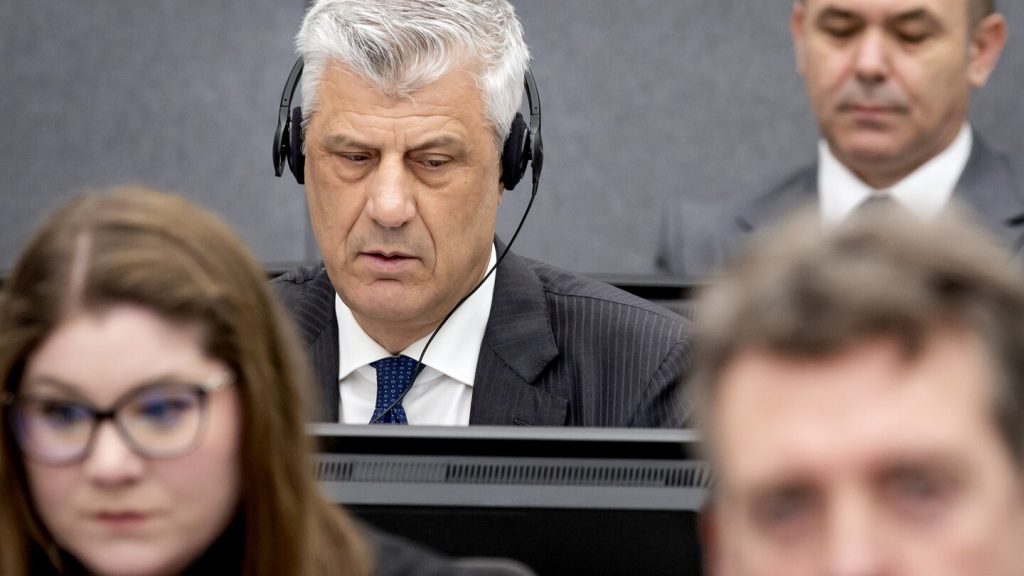THE HAGUE, Netherlands (AP) — Former U.S. State Department spokesman James Rubin testified Monday as the first defense witness for Hashim Thaçi, the former president of Kosovo, who is accused of war crimes and crimes against humanity allegedly committed during his country’s 1998-99 war for independence from Serbia.
Thaçi is on trial at the Kosovo Specialist Chambers court in The Hague with three other former leaders of the Kosovo Liberation Army guerilla group that fought Serb forces in the war. They are widely regarded as national heroes in their homeland.
Rubin was with former U.S. Secretary of State Madeleine Albright at peace talks in France in 1999 and later was present at negotiations to disarm the Kosovo Liberation Army, also known as the KLA. He described Thaçi as a political “front man” for the force, without real power.
“It was clear to me that he was not in charge,” Rubin told the court. “He didn’t have the knowledge, the capabilities or the authority to make decisions in any way, shape or form.”
Thaçi rose to political power after the war but resigned as president to defend himself against charges he faces along with Kadri Veseli, Rexhep Selimi and Jakup Krasniqi, including murder, persecution, torture and enforced disappearances.
The trial opened April 3, 2023, with Thaçi — known as “The Snake” during the war — telling judges he was innocent. Prosecutors wrapped up their case after calling 125 witnesses.
Prosecution lawyers argued at the trial’s opening that they were not putting on trial either the Kosovo Liberation Army or the war for independence.
“These four accused are on trial in respect of their personal responsibility for crimes committed against persons who they viewed as opponents, a majority of whom were in fact their fellow Kosovo Albanians,” prosecution lawyer Clare Lawson told judges.
Most of the 13,000 people who died in the war were ethnic Albanians. The fighting was ended by a 78-day campaign of NATO air strikes against Serbian forces.
Kosovo declared its independence from Serbia in 2008, a move recognized by the United States and many other Western nations, but not by the authorities in Belgrade.
The court in The Hague and a linked prosecutor’s office were created after a 2011 report by the Council of Europe, a human rights body, that included allegations that KLA fighters trafficked human organs taken from prisoners and killed Serbs and fellow ethnic Albanians. Thaçi and his fellow defendants are not charged with organ harvesting.
Monday’s hearing unfolded against a backdrop of political stalemate in Kosovo seven months after elections. The U.S., a key supporter of Kosovo, on Friday suspended talks with the country, blaming its caretaker government for rising tensions and instability in the small Balkan country and the region.
___
Associated Press writer Llazar Semini in Tirana, Albania, contributed to this report.


